Search Results
Showing results 1 to 16 of 16
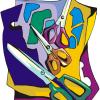
Fun with Shapes
Source Institutions
In this activity, early learners combine pre-cut recognizable shapes and their own abstract ideas to make representational pictures (e.g. houses, trees, shoes).

Geometry and Spatial Relations: Tessellations WOW!
Source Institutions
In this math lesson, learners explore tessellations through literature, music, writing, and art activities.
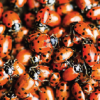
Ladybug Spots
Source Institutions
In this art/science/math activity, young learners are introduced to the concept of symmetry in nature.
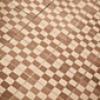
Twisted Tesselations
Source Institutions
In this activity (on pages 41-47 of PDF), learners explore tesselating geometric patterns (repeated shapes, similar to the art of M.C. Escher).
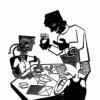
Greeting Card Boxes
Source Institutions
In this activity, learners make cool boxes out of old (or new) greeting cards or postcards.
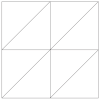
The Four-Square Quilt
Source Institutions
In this activity, learners arrange triangles together to make patterns to create paper quilts. Learners experiment with arranging the triangles in different ways to make various designs.
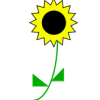
Patterns and Relationships: Peddling Petals
Source Institutions
In this math lesson, learners use the setting of a flower-making fundraiser to explore a variety of patterns. Learners examine the patterns in a flower design made of triangles surrounding a square.
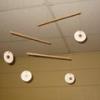
Rotational Equilibrium
Source Institutions
In this activity, learners explore the concept of rotational equilibrium. Learners work in teams to estimate and determine the force within a mobile design.
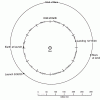
Getting There!: Navigation and Trajectory
Source Institutions
In this two-part activity, learners map a navigation plan to get from Earth to Mars and back. In activity one, learners represent the orbital paths of Earth through dance and dramatic movement.
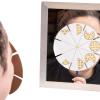
Make an Animation
Source Institutions
In this activity, learners make a device called a phenakistoscope, which displays a continuously looping animation consisting of images drawn onto a spinning disc.
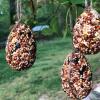
For the Birds
Source Institutions
In this activity, learners will explore nature by creating food for birds. Learners will develop fine motor skills and engage in nature observation through this activity.
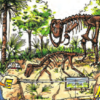
Dinosaur Interaction
Source Institutions
In this activity, learners explore why animals, specifically dinosaurs, live in families.
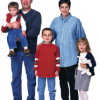
What is an Animal Group?
Source Institutions
In this activity related to dinosaurs, learners explore why animals live in families. Learners discuss and identify animals living in families or groups from images and photos.

A Matter of Splatter
Source Institutions
In this math-based activity, learners will experiment to find how height and angle affect spatter and then use this knowledge to solve a crime.
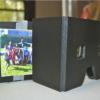
Stereoscope
Source Institutions
In this activity, learners construct a device that allows them to view 2-D images in 3-D.
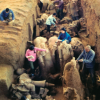
Where in the World is the Terra Cotta Army?
Source Institutions
In this activity, learners find Xi'an, the archaeological area in China where the Terra Cotta Army was discovered, on a map or globe and look more closely at the relationship of the warrior site to ot
